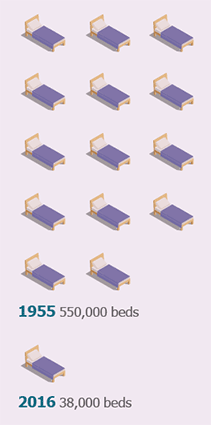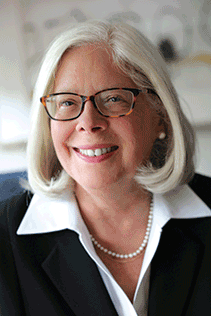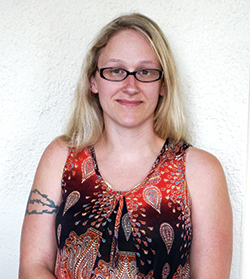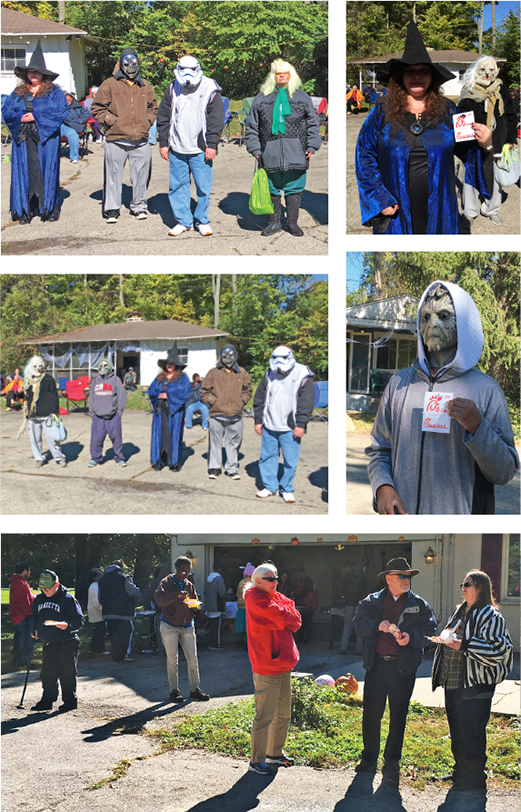

Upcoming Holiday Party for Clients, Residents & Tenants
Thursday, Dec. 6, 2018, 5:30–8 pm
Kohler Banquet Center, Lincoln Room, 4572 Presidential Way, Kettering, Ohio
For tickets please contact Kathy Nickell at knickell@placesinc.org or 937-461-4300.
Shifting to the Community

Community-based treatment is a defining trend in behavioral health. The number of state psychiatric beds in the U.S. has fallen from over 550,000 in 1955 to fewer than 38,000 in 2016, according a Treatment Advocacy Center report.
Service Awards
This fall PLACES celebrates service milestones among its dedicated staff (below). We appreciate their continued commitment to supporting our mission in the greater Dayton area.
5 years
Stacey Coleman
Michelle Cummings
Michael Dean
Brittany Eldridge
Shonta Greathouse
Charles Pitman
Andria Theis
10 years
Flora Igah
Julie Mayhew
Michelle Upshaw
15 years
Barb Spencer
Deliliah Tuck
20 years
Roy Craig
Rita Morrow
25 years
Rob Jones
Barbara Miller Joins Board of Trustees
 PLACES volunteer Barbara Miller joined the organization’s Board of Trustees in May. With 36 years of experience in behavioral health data systems, she served 28 years on the ADAMHS Board, both as a Program Evaluator and Information Systems Director.
PLACES volunteer Barbara Miller joined the organization’s Board of Trustees in May. With 36 years of experience in behavioral health data systems, she served 28 years on the ADAMHS Board, both as a Program Evaluator and Information Systems Director.
As a devoted community volunteer, Barbara has worked on behalf of CARE House of Dayton Children’s Hospital, Oakwood Historical Society, and the University of Dayton New Horizons Music Program. She enjoys playing bridge, baking and spending time with her family, which includes two children and four grandchildren.
Trends in Behavioral Health
Expanding Our Role in Community Psychiatric Supportive Treatment
Community psychiatric supportive treatment (CPST) is designed to provide targeted and individualized services to help people diagnosed with mental illness succeed in the community and better integrate into school, work and family life.
These services are delivered by community-based, mobile individuals or multidisciplinary teams of professionals and trained others. They can vary with respect to hours, type and intensity of services, depending on the changing needs of each person.
At PLACES, these types of supportive services are delivered by the case management team of nine supervised by Clinical Services Coordinator Jennifer Scott and Clinical Director Brian Wlodarczyk. For years PLACES has been providing supportive services to residents, clients and tenants through the support of ADAMHS. Now that PLACES has become certified by the State of Ohio, it will be taking advantage of the opportunity for payment through Medicaid, while continuing to offer supportive wrap-around services through ADAMHS.
“Certification doubles the Medicaid-reimbursable services we can provide through case management,” Scott explained. “When I was in private practice in mental health we couldn’t offer these types of activities because Medicaid didn’t pay for it, so there was no funding. This is the first place I’ve worked that can provide it, and I see huge benefits for our clients.”
Higher Standards, Greater Care
Having Medicaid as a new source of funding benefits PLACES constituents in other ways, too. Because Medicaid has rigorous standards, staff are becoming better trained in assessing clients and planning activities that are tied to minimizing their symptoms.
Case management staff are not licensed like therapists. Some have high school diplomas while others may have a Master’s degree. To provide the variety of medically-necessary services, staff members need training in specific areas to meet Medicaid’s quality standards.
PLACES is expanding its training program for all staff to prepare them for the broader mission with Medicaid. This includes more than 20 hours of training for direct-care staff, including classroom sessions and a computer-based training system on MyLearningPointe. They’ll have additional education on topics like recognizing the symptoms of severe and persistent mental illness, clinical documentation, and Trauma-Informed Care.
Tailored Treatment
While Medicaid covers many of the basic coaching and case management needs of PLACES clients, it doesn’t fund other services such as transporting residents to our holiday party, having group birthday celebrations, or taking clients to a food pantry. That’s where the ADAMHS Board continues to play an important role providing practical supports that are not reimbursed by Medicaid.
“When I worked in traditional community mental health agencies, we couldn’t offer this variety of activities because there are limitations to what insurance will cover,” Scott said. “There are so many barriers for our severely mentally ill and homeless clients. I see a huge benefit in having the support of our local board to comprehensively care for these individuals.
“Our goal is for clients to manage their illnesses and ideally not to need us anymore,” she added. “Because our agency serves persons with severe and persistent mental illness, many will require at least some form of treatment for the rest of their lives. Our staff members develop a relationship and then teach skills to help the client be as independent as possible.”
It Takes A Special Person
PLACES case managers spend lots of time teaching, guiding, coaching, and empowering clients to advocate for themselves. “It takes a lot of patience – I can’t say that enough. Our staff members also need to be thoughtful because many of our clients have a hard time with organization as a result of their mental illness. We need to be able to model independent living skills,” Scott said.
“We teach and encourage clients to manage their condition. We don’t do things so much for our clients, but with our clients. Our case managers need good boundaries.”
Meet Our New Clinical Services Coordinator
The clinical services team continues to expand with the hiring of Jennifer Scott as clinical services coordinator in May. She works closely with the director of clinical services, Brian Wlodarczyk, who came on board this spring.

Jennifer Scott is an independently licensed Mental Health and Chemical Dependency Counselor (LPCC-S, LICDC-CS), whose clinical orientation is in Motivational Interviewing and Cognitive-Behavioral Therapy. A graduate of Wright State University with a Master of Science degree in Mental Health Counseling, she has spent 13 years in the field serving many populations, including those with mental health, substance abuse, criminal justice, eating disorder and trauma issues.
Jennifer provides clinical training and supervision to the direct care mental health professionals at PLACES. She is passionate about empowering clients to make informed choices with the support of an understanding guide.
“Helping people to make the changes they want for a better life is more than just a career for me; it’s who I am,” she said. “No one asks to be burdened by a disability, mental illness, addiction or a devastating stressor. Sometimes people just need support to be their best selves. I take that approach with my clients and share those tools with the staff I supervise.”
PLACES Celebrates 30th Anniversary with Summer Event
In June, PLACES employees, their family and friends celebrated 30 years of fulfilling an important community mission with a special event at the Dayton Dragons stadium. More than 50 people showed up at the event, which was co-hosted by the Dragons and PLACES. Several hundred dollars was raised to contribute towards special events like the upcoming holiday party (December 6).

Clockwise from top: Executive Director Roy Craig and his wife Carrie, Stacy Coleman and Jeff Stokoe before the game, Jeff and Barb Stokoe, who both work at PLACES, along with their family.
Trick or Treat?
Having fun at the Harvest Party on a lovely October day is just one of the “extras” of community psychiatric supportive treatment that encourage socialization among PLACES’residents, clients and tenants.



